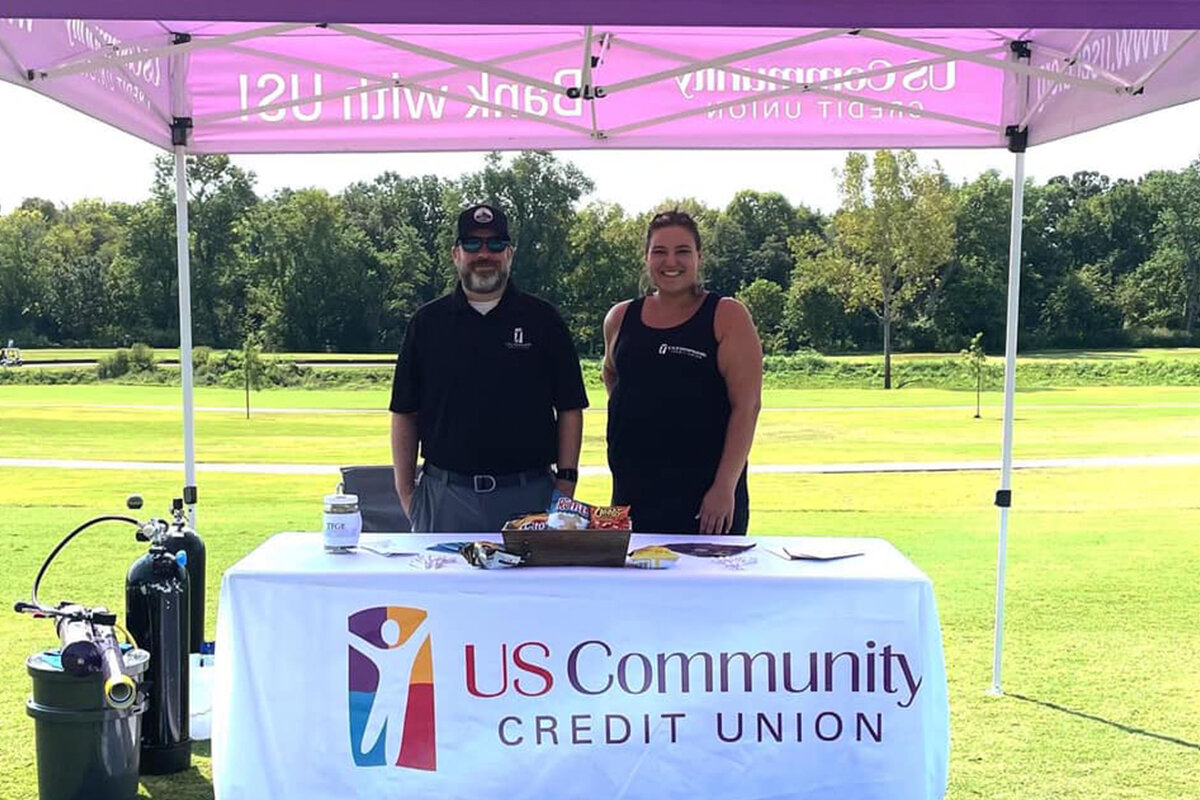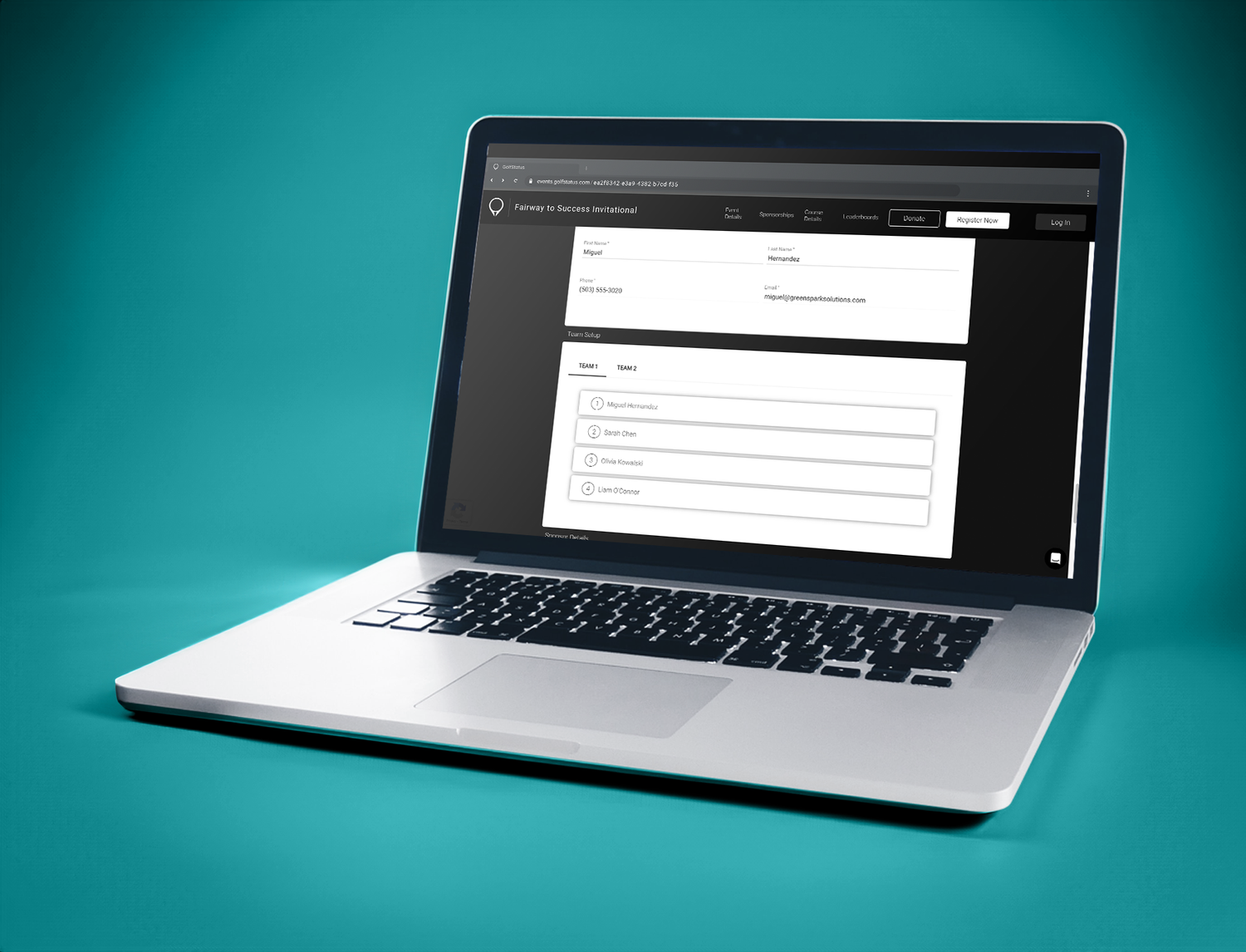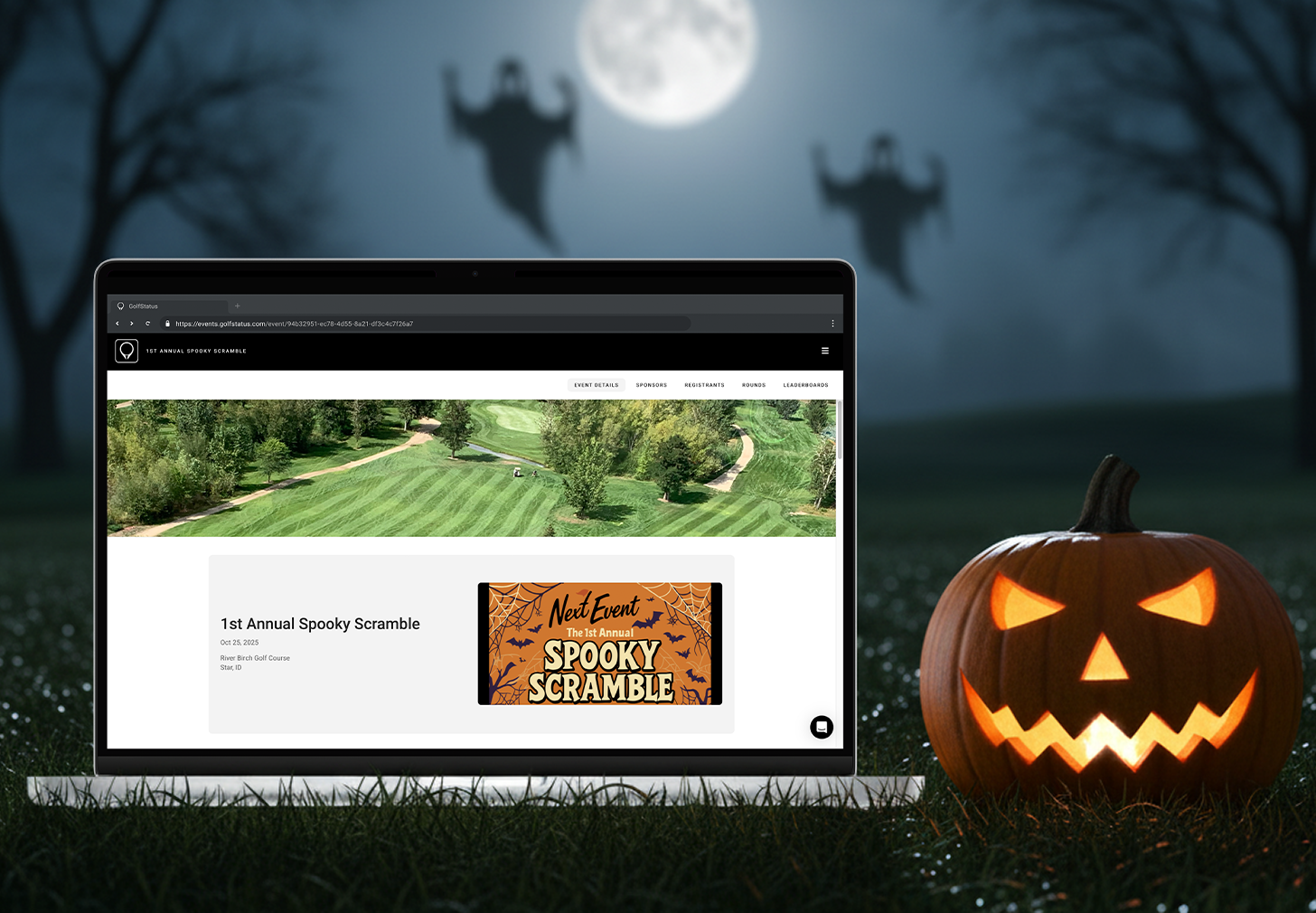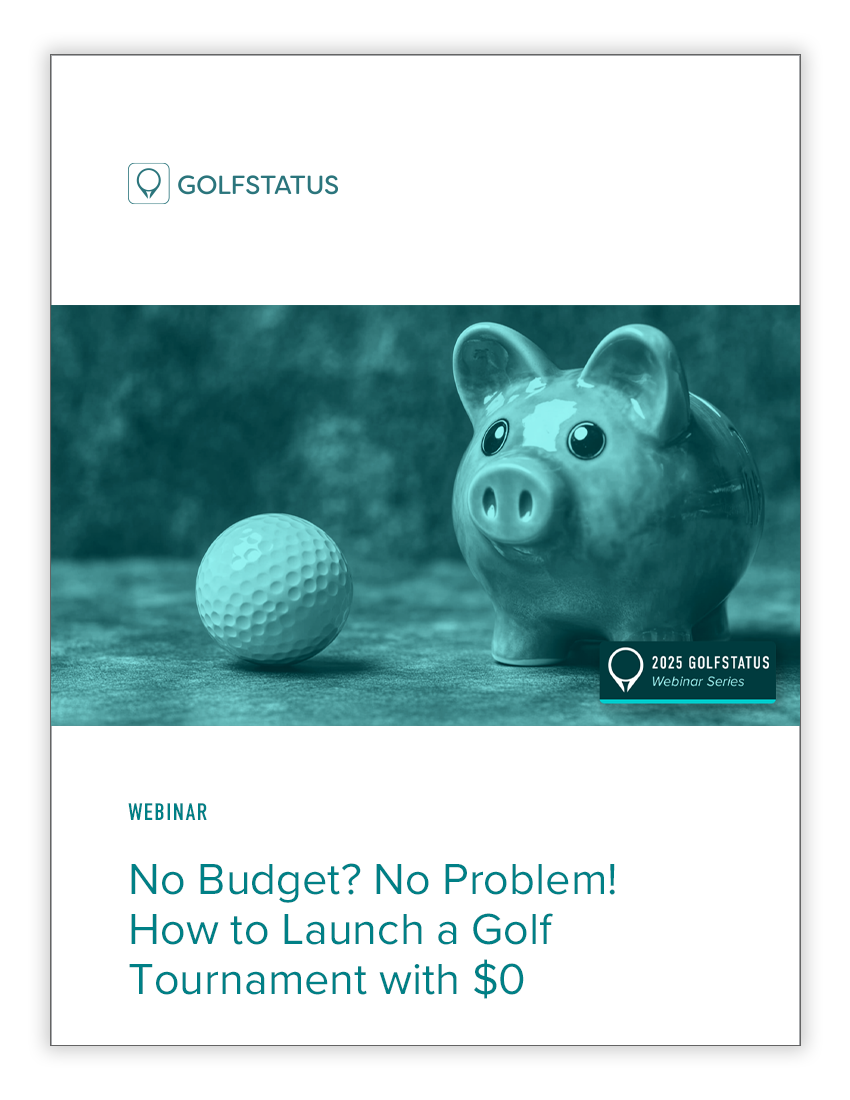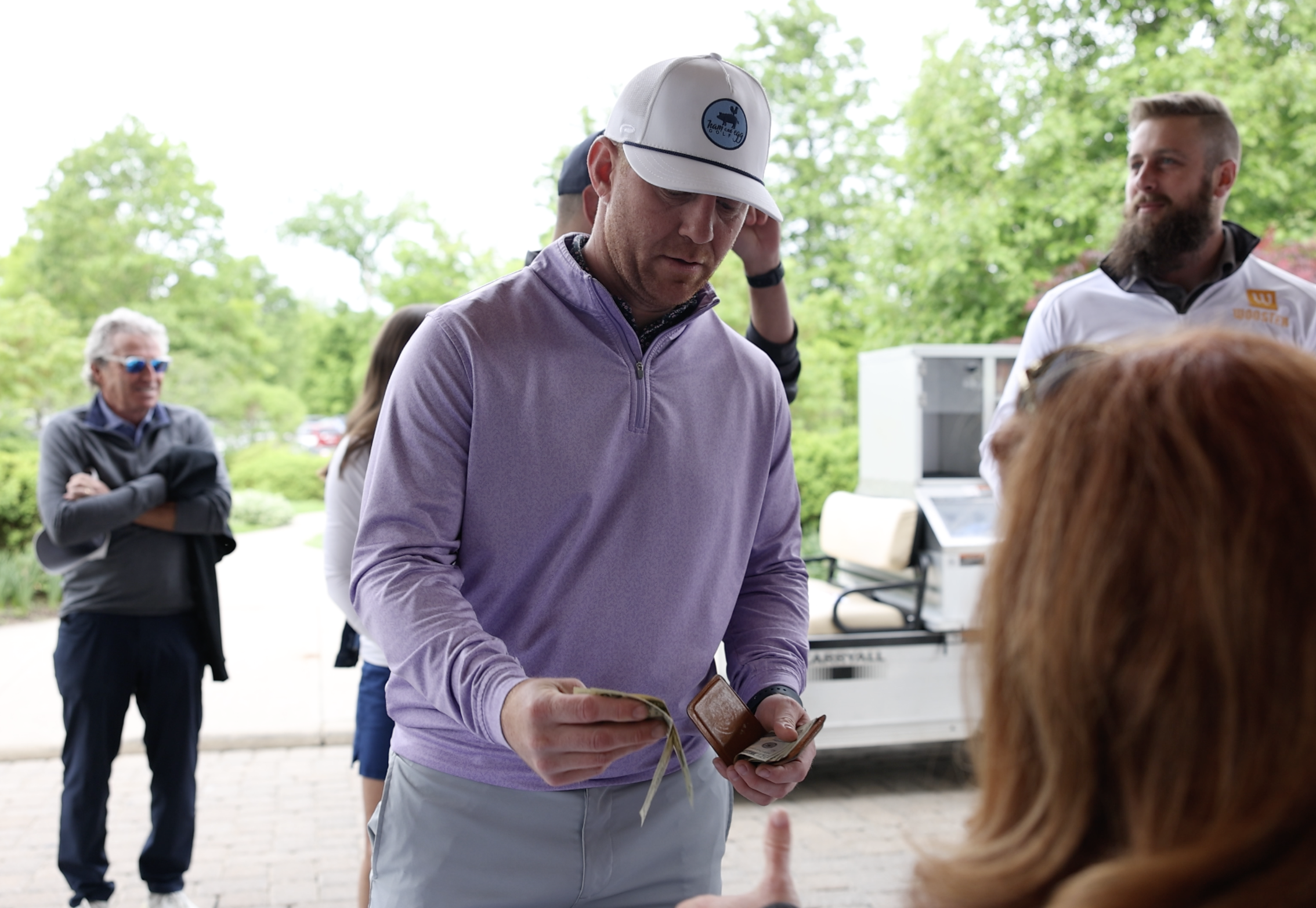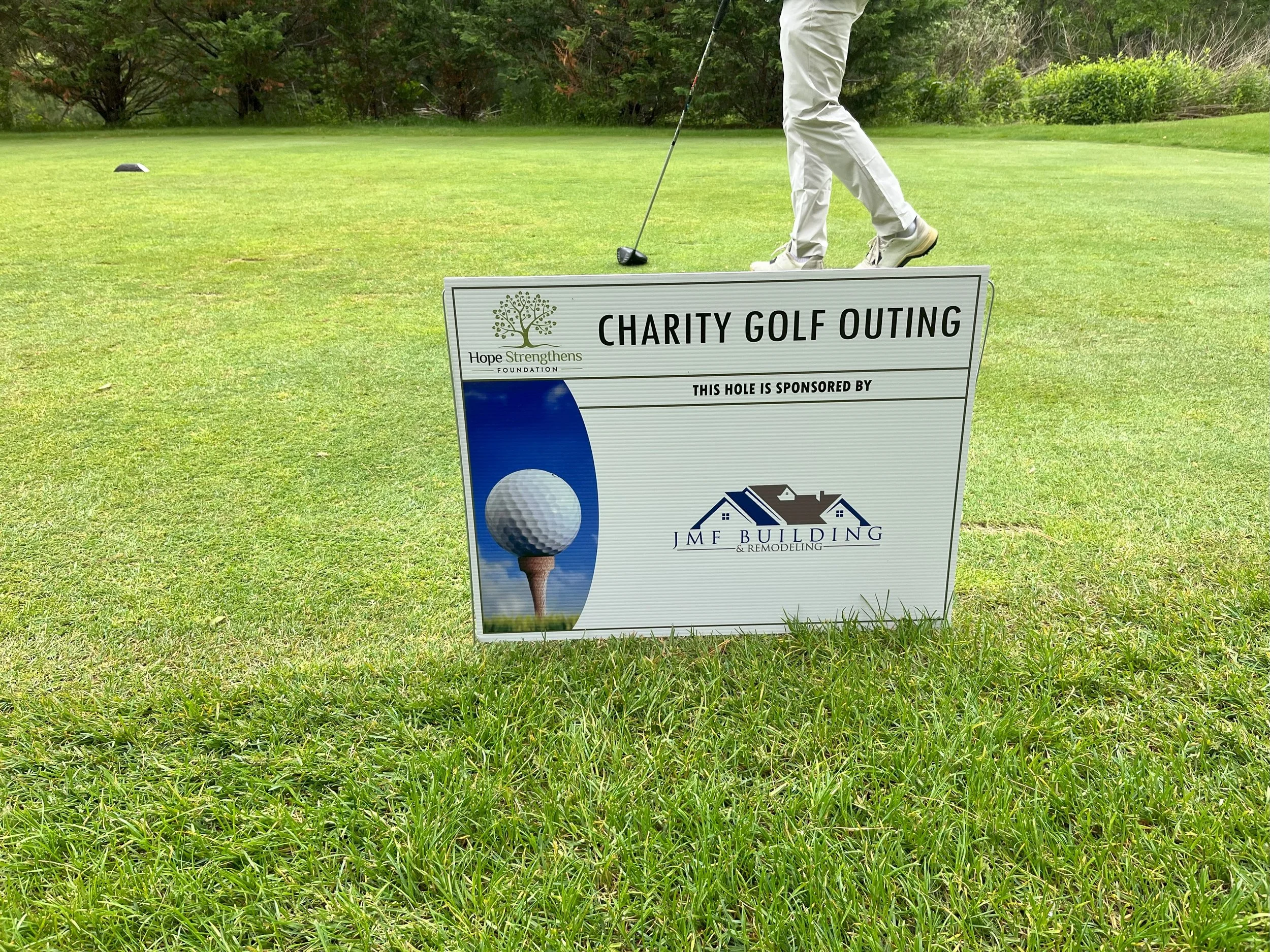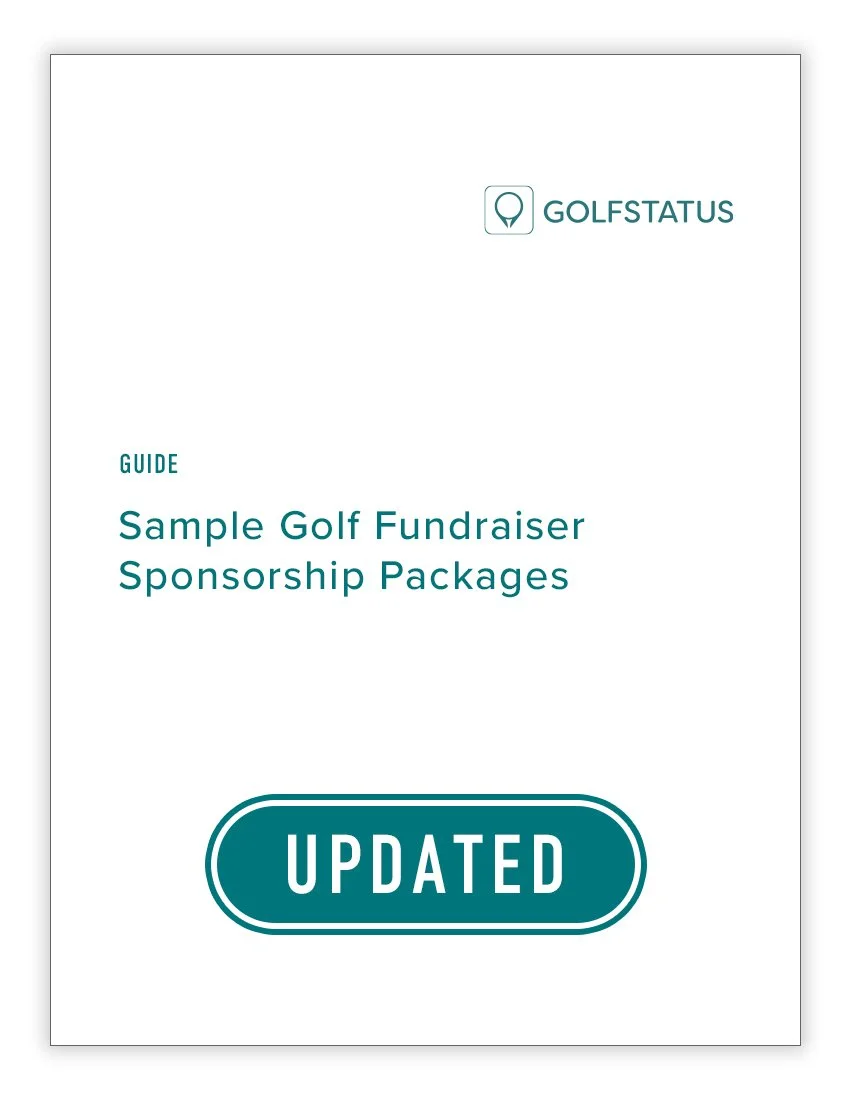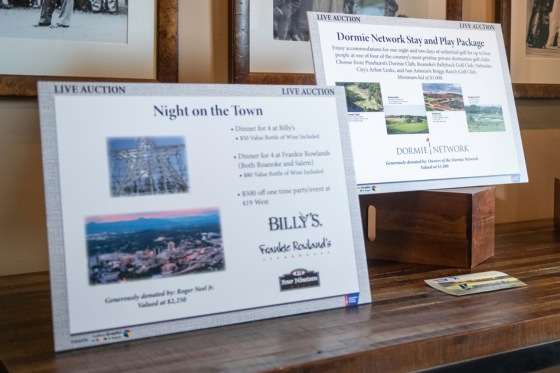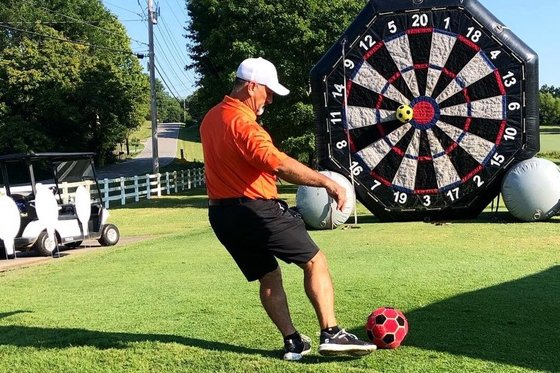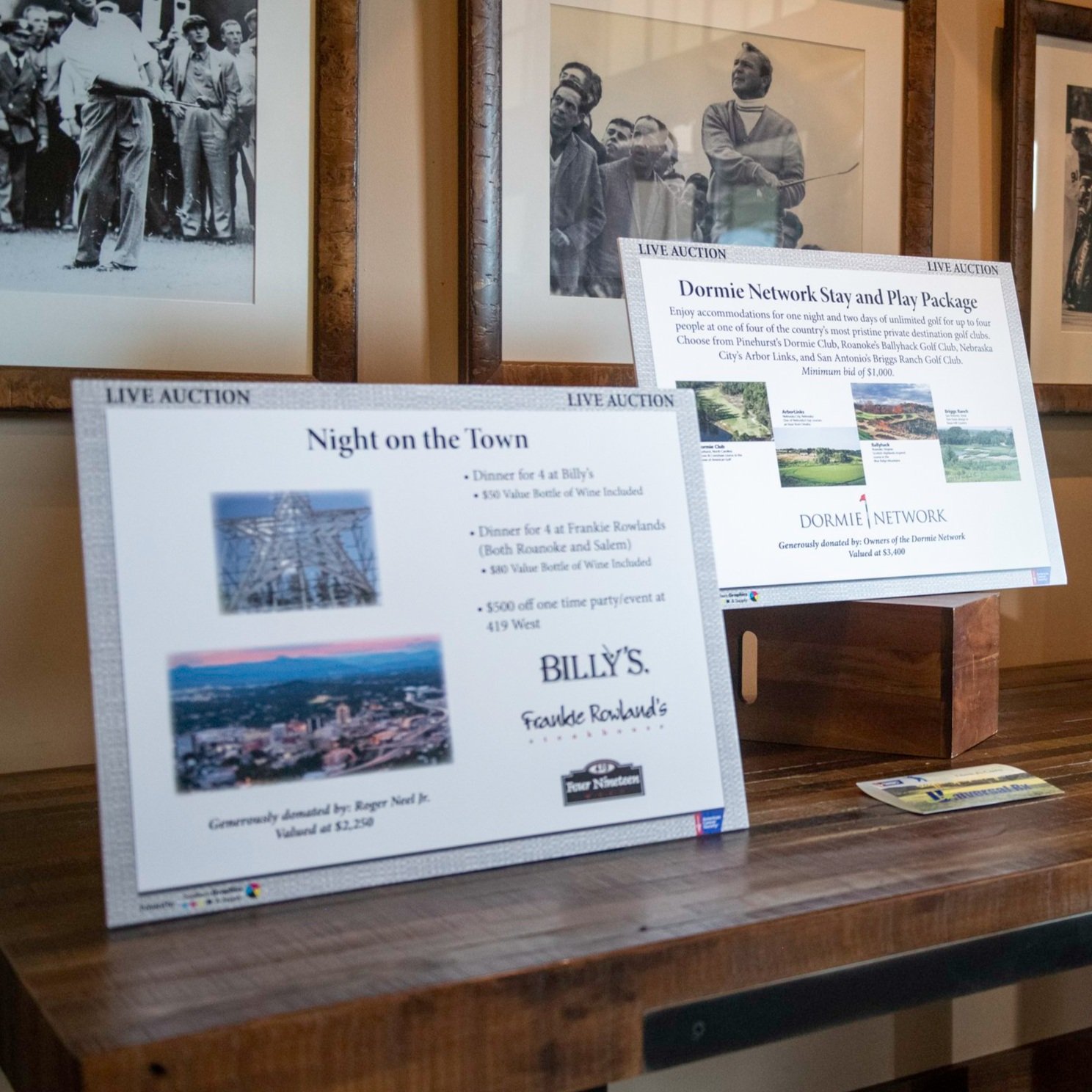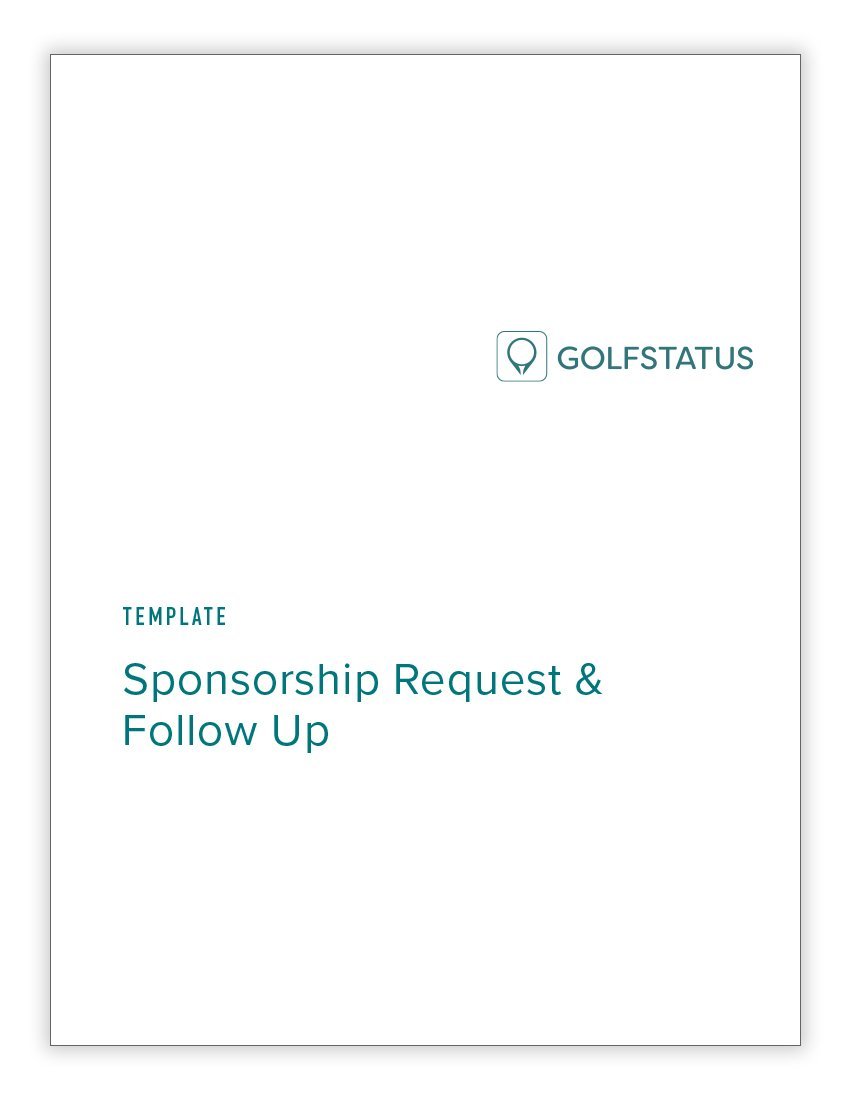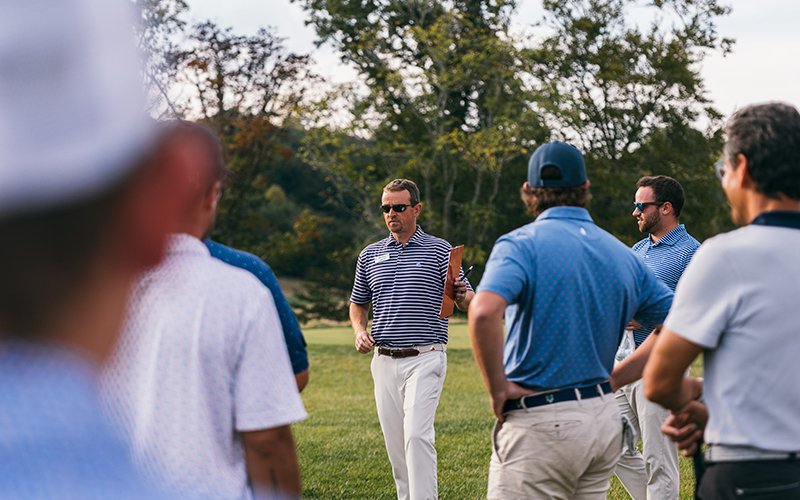by Jen Wemhoff, Communications Manager at GolfStatus
If you’re looking for a fresh idea to engage employees, clients, and the community at large while raising awareness about your brand in a unique and meaningful way, a corporate golf event is the perfect answer. Corporate golf outings—especially when they’re well-managed and organized—offer a variety of positive outcomes for a company.
Corporate Golf Events FAQ
What is a Corporate Golf Event?
A corporate golf event is a tournament or outing planned and hosted by a business. Corporate events often raise money for a corporate foundation or favorite nonprofit, but don’t have to include a charitable component. Such events are used as an opportunity for team-building across departments, to entertain clients or prospects, or as a give-back initiative.
Corporate Event Case Study: Credit Unions for Kids Golf Classic
Hosts: US Community Credit Union and Engbright Credit Union
Beneficiary: Monroe Carrell Jr. Children’s Hospital at Vanderbilt
Outcomes: Raised $50,000 for patient financial assistance and built community connections.
Specifics: Hosts sold sponsorships to partners, vendors, and associations that share an interest in the cause. Golfers represented sponsors, employees from the hosts and competing credit unions, city council members, and hospital staff. Patients and administrators attended to connect golfers with the “why” behind the event.
What Are the Benefits of Corporate Golf Events?
Enhance Corporate Social Responsibility. A corporate golf outing that benefits a charity or cause is a great addition to your company’s CSR portfolio. This could mean connecting with an existing golf event to support it as a sponsor, or taking it a step further and hosting your own corporate event benefiting a charity.
Connect With Your Community. Golf has deep ties to the nonprofit sector, raising $4.6 billion for charity annually and bringing people together in a memorable way to raise funds for a good cause. Invite targeted community members, staff or beneficiaries from the charity the outing will raise money for, or focus on your business’s employees and customers.
Get a Competitive Edge. A golf event helps set your brand apart, giving you four or five focused hours of facetime with colleagues, vendors, clients, or prospects.
Boost Employee Engagement. Businesses need to find ways to attract and retain top talent, which means demonstrating that business priorities include more than just the bottom line. Use a golf outing to engage and reward employees, build morale, encourage retention, and give back.
How to Host a Corporate Golf Event
If you’ve never planned a golf tournament before or don’t know much about the sport, don’t worry—you can still hold a professional, memorable event. Here’s how:
1. Use the Right Tools
It’s likely that planning a company golf outing isn’t your full-time job or something you do regularly, so you might not know where to start or how to maximize efficiencies. Most event management systems aren’t able to intuitively manage the details of a golf outing (hole assignments, player pairings, scoring and leaderboards, flighting, handicaps) so look for one that’s built specifically for golf tournaments and includes:
Online Registration. This is a must-have—golfers seamlessly submit their information and payment online, saving hours of dealing with spreadsheets, checks, and receipts.
Customizable Event Website. The site should present your event in a professional light and make it simple to promote, provide digital sponsor exposure, and share updates.
Shared Access. Registration information should populate into the platform’s back end, where it’s accessible in one place by organizers and even staff at the golf facility.
Communication Tools. The platform should have built-in communication tools, like emails and push notifications, to quickly and easily communicate with registrants.
Pre-formatted Printouts. Use a platform that comes with pre-formatted, professional printouts like branded cart signs and scorecards.
Live-scoring & Leaderboards. Golfers submit scores with an easy-to-use mobile app that syncs to live leaderboards and allows teams to track current standings.
Use the Best Tool for Your Golf Event: GolfStatus
Online registration is non-negotiable when planning a corporate golf event. It gives the event and your brand a professional feel and is a time-saver for tournament planners.
2. Set Goals & Form a Planning Team
The goals for the event will help other key details fall into place, so start by thinking through what you hope to accomplish. Keep in mind that goals don’t have to be mutually exclusive—you can engage employees while also raising money for charity.
Form a planning team of five to 10 people to help carry the load. Include employees, partners, and even a representative from the nonprofit partner (if your outing includes a fundraising component) to help plan and execute the tournament. Identify roles and responsibilities to ensure everyone is on the same page.
3. Establish a Budget
Your goals will help inform your budget. If you’re raising money for a charity, your budget will likely look different than if your main focus is employee engagement or entertaining clients.
Start by outlining the major costs—greens fees, cart rental, food and beverage, and player gifts. Other costs might include marketing, entertainment, awards, and hole-in-one insurance.
Next, identify sources of income, such as golfer registration fees, sponsorships, mulligan sales, on-course game entries, merchandise sales, raffle tickets, or an auction. If your outing’s goal doesn’t include fundraising, you likely won’t have to prioritize revenue.
Finally, build sponsorship packages to cover hard costs (unless you have a dedicated budget that includes line items for all costs). Offer a variety of options at different price points to entice businesses to commit and include benefits that provide high ROI.
4. Determine Details & Logistics
Once your budget is outlined, you can move on to determining other core event logistics. Start by choosing the host golf facility, date and time, and format. The vast majority of corporate events are scrambles, which are attractive to golfers of all skill levels. Then move on to other details, including:
Event schedule
Marketing strategy
Contingency plan for inclement weather
Prizes and awards
Team pairings
Hole assignments
Add-on activities and contests, such as on-course games, hole-in-one contests, raffle drawings, or a live or silent auction
5. Promote the Corporate Golf Event
How you get the word out depends on the target audience. If the tournament is open to employees, include a link to the event website in internal newsletters or mention it in company meetings. If it’s open to the community, send promotional emails, include it in client newsletters, and mention it on your social media channels. If you’re raising money for a nonprofit, work with them to promote the tournament to their supporter base.
Consider drumming up some positive PR for your company and what the event is raising money for, if you include a charitable component. Invite members of the press and the community to participate and work together to raise awareness for a good cause (and give your brand a substantial lift).
6. Provide a Memorable Event Experience
What sets a great event apart from a good event is the overall experience. Folks will remember if the event was chaotic and plagued with snafus or if it ran smoothly. Using tech tools to manage the event frees golf facility staff up to assist golfers instead of scrambling to handle last-minute tasks and helps you stay organized to execute a seamless event.
Yes, your event needs to be well-run, but it should also offer a memorable, top-notch experience that advances business goals:
Include add-ons and extras like contests, on-course games and entertainment, auctions, and custom player gifts.
Live score the event to add an element of professionalism and let spectators (as well as event organizers who are tracking the round’s progress to facilitate post-round events) follow along on live leaderboards.
Build in ways to connect with employees and/or clients, such as through a pre- or post-round meal or reception, on-course interactions, the opportunity to volunteer, or informal networking.
Be strategic with hole assignments to further business objectives. For example, you may want to pair your company’s top executives with their counterparts from a partner or prospective client to talk business and potentially even close deals. Or group staff or board members from the benefiting charity with potential partners or donors to help advance their mission and open doors for additional support.
Use pin flags and hole signs to recognize sponsors, partners, or nonprofit supporters with excellent on-course visibility.
7. Track & Report Event Data
It’s important to demonstrate the success and impact of the event to prove its value to decision makers in your company and your commitment to giving back (if your tournament includes fundraising). Fold data into an impact report that you share with decision-makers and stakeholders. Your golf event management platform should include robust reporting that helps you see at a glance:
The number of teams or individual golfers
The number of sponsors
Dollars processed through online registration and donations
Gather further information to gauge the event’s success by:
Sending surveys to collect feedback and gauge the event’s impact on employee satisfaction
Having informal conversations to see what they liked and how you can improve
Meeting with the benefiting nonprofit to determine fundraising outcomes and next steps for donor stewardship
8. Nurture Relationships
Keep the goodwill going post-outing. Follow up with key clients and partners who attended. Use the conversations from the course as a foundation to thank them and continue the business relationship. Be sure to send a thank-you note and post-event report to all sponsors. Include data on the event's success, photos, and testimonials to prove the event’s value and help secure their participation for next year.
If your corporate golf event becomes an annual tradition, consider tracking and analyzing long-term trends, such as employee retention and the event’s impact on the company’s culture.
9. Look Ahead to Next Year
While the positive feedback from the outing is still fresh, use the data and relationships to lock in key players for the following year. After you get the approval from leadership to hold the outing again next year, re-engage your planning team while they are still in event mode to lock in their commitment, then connect with the golf facility to get first dibs on your preferred date. If you had sponsors, follow up with them after sending your post-event report to offer them an early-bird incentive to secure their commitment for next year.
Your event management platform should make it easy to copy your event so you don’t have to start from scratch. Simply update a few key details and your event website is ready to go!
Powering Corporate Golf Events with GolfStatus
Whether you’re at a Fortune 500 company, a socially responsible local business, or a corporate foundation raising money for a dedicated cause, GolfStatus’ golf event management and fundraising platform is the solution for the best event possible.
GolfStatus’ powerful, user-friendly tech saves organizers time and effort, helps raise more money, boosts your brand, and ensures a professionally planned and executed tournament from start to finish. Get a professional event website, golf-specific tools and features, sponsorships and add-ons, and a dedicated client success rep to coach you along the way. Book a meeting to get started!
About the Author
Jen Wemhoff - Communications Manager at GolfStatus
Jen Wemhoff accidentally discovered her passion for nonprofits in college. An internship while earning a degree in Communications from Doane University led to a 20 year career in the nonprofit sector, where she found a strong desire to be part of something bigger than herself. Her vast nonprofit experience includes roles in marketing, fundraising, and direct programming. When Jen came to GolfStatus as Communications Manager in 2020, she was struck by the power of the sport to raise money to power nonprofit missions. She tells GolfStatus’s story across platforms and channels and develops educational tools and resources to help nonprofits tap into golf’s giving power. Jen, her husband, and two daughters call Lincoln, Nebraska home.


